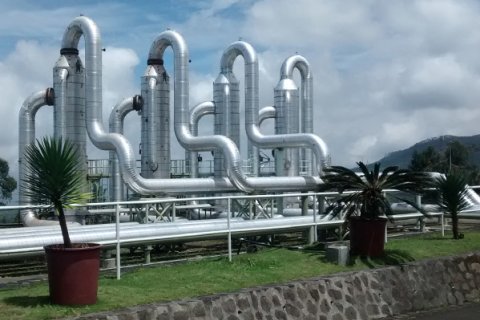Heating sector to join forces and supply affordable, sustainable heating
Gas supplies are to be eliminated from the built environment as part of the Climate Agreement. Heat networks are one of the solutions here. The challenge is to deliver sustainable heating in existing buildings in a cost-effective way. In addition, the pace of implementation needs to increase in view of the major challenges facing the Netherlands. A consortium of parties active in the entire sector, from heat source to customer, has set up an alliance to achieve these goals.

A range of actors are involved in the integrated heating chain from source to customer. System and process innovations are needed to design, install and manage all heat supplies more efficiently. The heating collective WarmingUP was set up to develop these innovations in a coordinated way and at a faster pace.
Objective
WarmingUP, managed by TNO, can collectively address issues relating to upscaling, cost reduction and sustainability in an integrated way, and develop the relevant solutions. The main goal of WarmingUP is to develop collective heating systems that are affordable, sustainable, reliable, practical and socially acceptable.

Geothermal opportunities
Utrecht University plays a role in two areas. Earth scientists will investigate whether the Dutch soil is suitable for geothermal energy. "Contrary to what we see in Groningen, for example, no physical material is extracted from the soil with geothermal heat, so the pressure remains constant", says Prof Jan Diederik van Wees, who works at Utrecht University and TNO. However, in some places the soil does cool down slightly because we extract heat from it. This can cause the rock to shrink a little. Although there is no reason to assume that this is noticeable on the surface, we are going to investigate this."
Informed decision making
Energy expert Dr Robert Harmsen of the Copernicus Institute of Sustainable Development, Utrecht University, will supervise a PhD student who will investigate the foundations of decision-making in natural gas-free neighbourhoods. "We want to build a model that can analyse the influence of a new heat infrastructure on, among other things, the spatial environment, nuisance and living comfort. This will enable municipalities and residents to make much more informed choices, which will facilitate decision-making."
About WarmingUP
The Netherlands Enterprise Agency (RVO) has announced that the innovative sustainable heating collective WarmingUP will receive a subsidy amounting to 9.3 million euros as part of the Long-Term Mission-Driven Innovation Programme (MMIP). With the investment of €9.5 million by the alliance partners themselves, the total funding available will amount to €18.8 million.
Upscaling, reducing costs and achieving sustainability in collective heating systems requires a new way of thinking about heat supplies. During the three-year period, this innovation plan will lay down the foundations for the achievement of the ambitions and the first steps will be taken.

